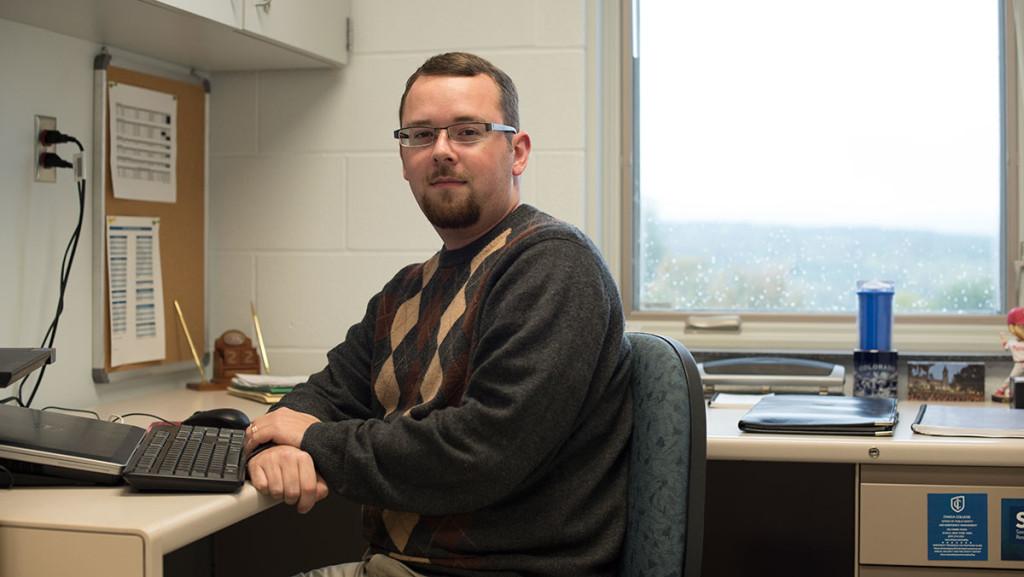The Advocacy Center of Tompkins County and the Office of Public Safety and Emergency Management are collaborating to bring the national sexual assault–prevention program “Bringing in the Bystander” back to Ithaca College this semester with peer education–based training, beginning next week.
This program, originally developed by the University of New Hampshire, will be adopted by the college to teach students how to intervene and defuse situations that could lead to sexual assault. The “Bringing in the Bystander” curriculum is currently a recognized tool for sexual violence prevention by the New York State Department of Health and the National Sexual Violence Resource Center.
After its pilot semester in the spring, which taught six new peer educators for the campus, the program is back with plans to expand, Andrew Kosinuk, crime prevention and community events liaison for Public Safety, said.
Training will be held from 10:30 a.m. to 12:30 p.m. Oct. 3 and from 6:30 p.m. to 8:30 p.m. Oct. 5 to teach the curriculum to peer educators, students who will co-teach discussion groups on bystander education. Training was developed and will be facilitated by co-directors Kosinuk and Kristi Taylor, adult community educator for the Advocacy Center.
The bystander intervention philosophy mainly focuses on recognizing risky situations and how bystanders — people who are standing by but not necessarily getting involved in a potentially dangerous situation — can intervene to prevent the situation from escalating.
The college’s presentation will add new topics like recognizing signs of domestic violence or how to step in if someone is making an unwanted advance on a victim who may not be able to defend himself or herself, Taylor said. One example could be creating a distraction to lure the victim away from a potentially dangerous partner.
According to the University of New Hampshire’s Prevention Innovations Research Center, the bystander philosophy has been referenced in nine academic journals since 2007, citing the approach as a known practice for prevention of sexual assault.
Kosinuk said the peer educator training is split into two main parts. The first part focuses on the “Bringing in the Bystander” concepts, including recognizing potential sexual harassment and strategies for intervening in situations. The second part will teach peer educators presentation skills and tips for managing group discussions and supporting students who share difficult content.
“I’d love to see more student organizations request a training session for all their members, or every resident assistant sponsor a bystander intervention training for their floor, or professors devote one class to a training program,” Kosinuk said. “There’s lots of great directions it could go in.”
Students interested in becoming peer educators must attend both sessions and will be on a roster of presenters to be notified when there is a program to present. Usually these presentations take place for a group of 10–30 students from any group that wants to hear about bystander intervention from a student perspective. Kosinuk said the most effective programs in the past have been small group programs that allow for a group dialogue that engages the students.
Junior Kelli Kyle trained with the program last spring and was able to teach the material she learned at a resident assistant floor meeting toward the end of last year.
Kyle said she found the most important part of the program to be the “what would you do” situations that allowed the group to see what kind of situations would need involvement from a bystander.
“I think the program is powerful enough that it sticks with us,” Kyle said. “I can educate my friends on what to do, and that’s the biggest part of it. You need your core army of [peer educators], but once they know how to stop threatening situations, it’s very easily transmitted to a lot of people on campus.”
Kyle, who will be a peer educator this semester, and Taylor agree that the training at the college will be largely tailored to specific experiences at the college in order to have “honest” and “realistic” conversations.
“One thing that is unique about these programs is that the scenarios used were all created by IC students, based on places they socialize and specific situations they or their friends experienced at IC,” Taylor said.
Presenters often draw on that experience to create scenarios or hypothetical situations and base a discussion around what the audience would do in that situation.
Taylor said there are not currently any programs scheduled to begin immediately after the training, but she and Kosinuk will be doing outreach to RAs, athletics and student organizations to schedule events throughout the rest of the semester.
As for the future, Taylor said she and Kosinuk are hoping to expand the peer educator training to fit the demands of the campus.
“The vision is for the program to grow and develop based on the needs of the campus and student input,” Taylor said.








